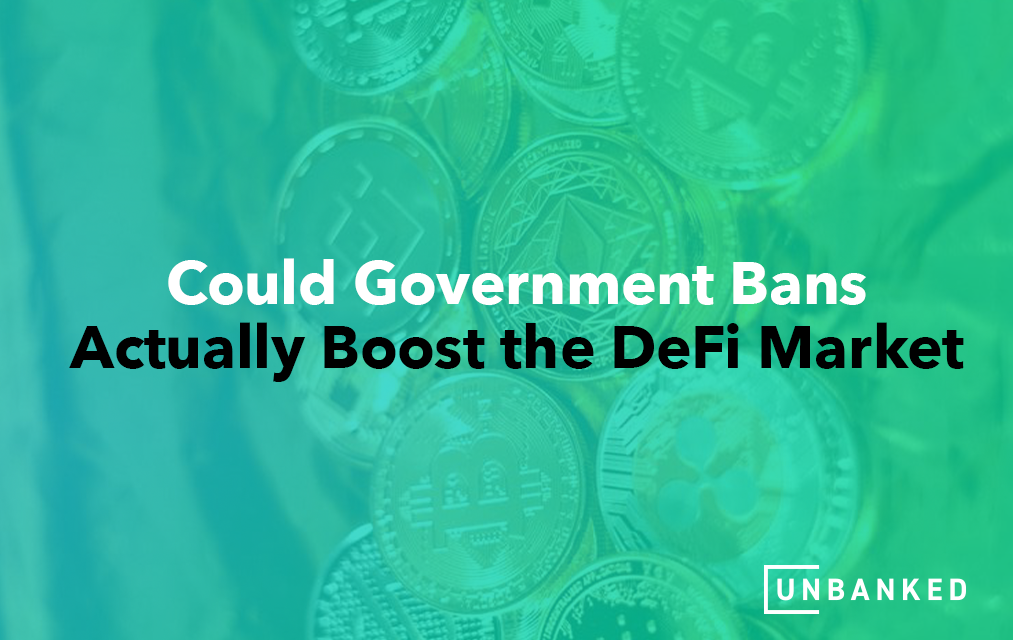Earlier this year, the Chinese government banned cryptocurrency mining and declared cryptocurrency transactions illegal. This was mainly because of the environmental and money laundering concerns. The Republic of China also intends to roll out its digital renmimbi (RMB). Although the official date has not been announced, it has already been pilot tested in a few small cities. Bitcoin and other cryptocurrencies, if allowed to exist, would have been a direct competitor to the government-controlled blockchain. This ban has coincided with the rise of decentralized finance or DeFi platforms that enable users to exchange and trade without any intermediaries. Chinese investors intend to continue trading cryptocurrencies using overseas bank accounts. While the latest ban might deter new investors, experienced cryptocurrency holders are moving to decentralized finance platforms to continue trading. While DeFi may be banned in China, it is not possible to monitor its use because of the anonymity offered by the DeFi platforms.
Similarly, the US also announced its plans of launching a digital dollar soon. The regulation of cryptocurrency largely depends on the US Securities and Exchange Commission (SEC). However, the SEC has been quite friendly with crypto, especially after the appointment of Gary Gensler as the chairman. Although he does not want cryptocurrency to become the new financial market of the US, he is no enemy of the regulated use of cryptocurrencies. He has often compared the role of the SEC in the crypto market to that of sports referees or traffic cops. Similarly, SEC threatened a lawsuit after Coinbase tried to launch its Lend program – an extending crypto lending arm. Crypto loans seem lucrative because they allow borrowers to receive funds in cryptocurrencies. Even traders can borrow and have access to cryptocurrencies – they can invest in crypto to generate passive income. The SEC did not allow the crypto lending arm of Coinbase as it can be packaged into security. That would make financial transactions out of the control of banking authorities. These regulations may be that bad, afterall. One of the major obstacles to the mainstream adoption of cryptocurrencies is the lack of a regulatory framework due to which people do not trust cryptocurrencies entirely.
The Crackdown May be Helpful
The crypto crackdown has led to the ubiquitous use of DeFi platforms by experienced crypto investors. DeFi platforms do not have the same “know your customer” protocols as the tightly regulated conventional exchanges. Governments are trying to regulate DeFi platforms by demanding more user identification. They want to monitor their users by having more authority over DeFi platforms. Given the ban, Chinese investors can no longer transfer their funds from DeFi platforms to their Chinese bank accounts. The government has cut down the links between cryptocurrency and fiat currencies. But this is not a concern for wealthy individuals since they have overseas bank accounts.
In the US, the SEC can also do a China-style crackdown on crypto companies. But most users are not too concerned about this. They have been calling for a stricter regulatory framework for quite some time now. This is because such regulations on crypto mean that it is a real investment asset. The regulations mean greater recognition from the government, leading to more investors buying the asset, which will increase its value. It is expected that unregulated DeFi products will face difficulties. Government will probably regulate crypto lending platforms that do not require the “know your customer” protocol and follow the anti-money laundering laws. Geslner has called crypto fund managers to abide by anti-money laundering regulations and comply with tax laws as they have a responsibility to the American public. Coinbase became public this year. Besides that, Greyscale is releasing new crypto funds. They also created a DeFi exchange fund earlier this summer.
The rise in the growth of the crypto market has made regulations more crucial than ever. If the market grows outside the public regulatory frameworks, there will be a lot of problems. A crackdown on crypto might help to smoothen the drawbacks of the sector, particularly the large number of scams. Crypto should embrace a well-informed governmental regulation. Like the internet, crypto has to endure these regulatory pains to become a mainstream vehicle of investment. Crypto has the potential to become more identifiable, more accountable, and more accurate than the centralized vehicles of finance.
A Greater Legitimization
It was always expected that China would ramp up cryptocurrencies because of its unregulated and borderless nature that counters China’s vision for a state-regulated economy. Quite ironically, China has banned cryptocurrencies several times before. However, the country’s crypto market has thrived; it has been the biggest market until the recent ban. To date, it has not seriously affected the crypto market. China has been the hub of crypto mining until now, despite all the previous bans. Nonetheless, this ban has been working better for DeFi platforms because centralized cryptocurrency companies are getting restricted. Therefore, investors are looking for decentralized alternatives that would benefit the decentralized ecosystem. Similarly, the US has stressed the need for regulation for crypto assets. The unregulated crypto territory can lead to significant losses to investments. Greater regulation could mitigate the loopholes of DeFi platforms and reduce the risk of investing. They would need monitoring tools that could work in a decentralized ecosystem. Regulators will move further with crypto regulation, as we have witnessed with Binance in various regions.
Many people under 40 have bitcoin as a part of their investment portfolio. They have more money in bitcoin than their 401(k) and consider cryptocurrency a considerable part of their retirement plan. At Unbanked, we believe that cryptocurrency is a driver of financial growth and inclusion. The mass adoption of cryptocurrencies depends as much on the government as on the investors. We help the underserved and underbanked to get affordable access to crypto products and services. We offer crypto bank accounts, credit and debit cards. To know more about cryptocurrency investment, read our blog.





